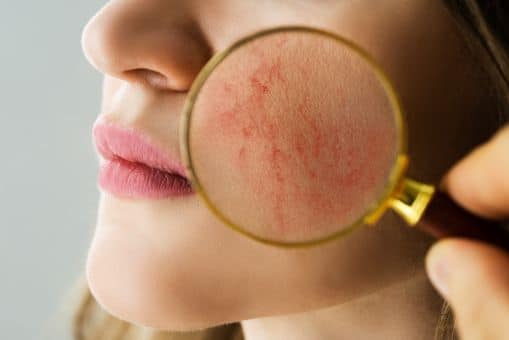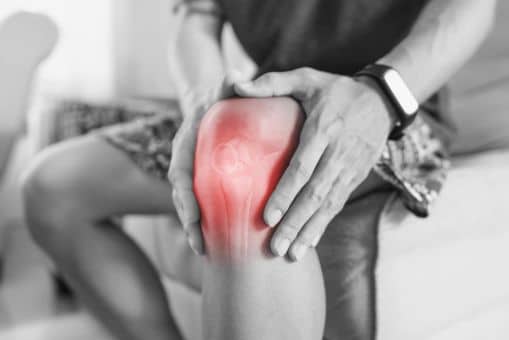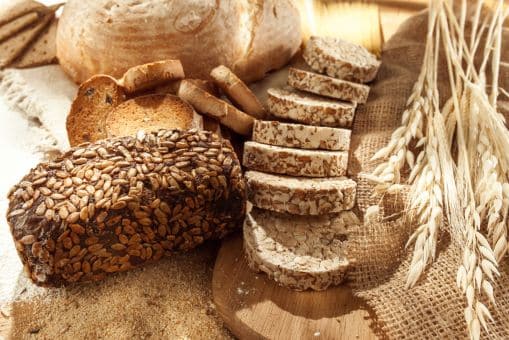What is coeliac disease?
An abnormal immune reaction to gluten, also known as coeliac disease, is an autoimmune condition. Wheat, barley, and rye all contain the protein known as gluten.
Eating gluten triggers an immune system attack that damages and inflames the lining of the small intestine in people with coeliac disease. This, therefore, has an impact on how well nutrients are absorbed from the diet, which may result in a variety of symptoms and consequences.
With an estimated 1% prevalence in the general population, coeliac disease is a very prevalent disease. From childhood to old age, it can happen to anyone. Strong hereditary influences play a role in coeliac disease.
The disorder is more likely to affect people with certain mutations of certain genes, such as HLA-DQ2 and HLA-DQ8. But not everyone who carries these gene variants will have coeliac disease.
Coeliac disease symptoms checklist
To prevent long-term consequences, it’s crucial to be aware of the symptoms of coeliac disease and to seek treatment as soon as possible. Here’s a coeliac disease symptoms checklist to make note of whether you may be at risk of the disease:
Digestive issues:

- Recurring abdominal pain or discomfort
- Bloating and flatulence (excessive gas)
- Diarrhoea or constipation (or a combination of both)
- Nausea and vomiting
Weight and appetite changes:

- Unexplained weight loss
- Loss of appetite or reduced interest in food
Nutritional deficiencies:

- Fatigue and weakness
- Iron-deficiency anaemia (characterised by low red blood cell count)
- Vitamin and mineral deficiencies (e.g. vitamin D, vitamin B12, calcium, or folate)
Skin problems:

- Dermatitis herpetiformis (itchy, blistering skin rash)
- Dry skin or skin lesions
- Mouth ulcers
Joint and bone issues:

- Joint pain and stiffness
- Osteoporosis or osteopenia (reduced bone density)
Psychological symptoms:

- Depression and anxiety
- Irritability and mood swings
- Difficulty concentrating or brain fog
It’s crucial to remember that coeliac disease symptoms can differ greatly from person to person. Some people may only have a few of the symptoms listed, whereas others may experience a combination of numerous symptoms.
You should speak with a medical professional for thorough testing and diagnosis if you feel you may have coeliac disease, regardless of the presence or severity of symptoms.
Treatments for coeliac disease
There is no cure for the disease but strict adherence to a gluten-free diet is the only recognised treatment for coeliac disease. This entails removing all gluten-containing foods from your diet to prevent small intestine damage and treat symptoms.
It is crucial to get advice from a healthcare professional, such as a gastroenterologist or a qualified dietitian with expertise in coeliac disease, if you suspect you have the illness. They will be able to offer a precise diagnosis, direction, and continuous assistance.
To properly manage and treat coeliac disease, try these methods:
Adopt a gluten-free diet

Adopt a gluten-free diet and cut out all products containing wheat, barley, rye, or any of its derivatives from your diet. This includes processed meals like bread, pasta, cereal, and baked products that may include hidden sources of gluten. Be careful while reading food labels and watch out for contamination on shared cooking surfaces or kitchen utensils.
Place emphasis on naturally gluten-free foods

Gluten-free foods that are naturally occurring in foods like fruits, vegetables, lean meats, fish, eggs, dairy, legumes, nuts, and gluten-free grains like rice, quinoa, corn, and millet should be the foundation of your diet. These foods offer necessary nutrients and are safe to eat.
Medications

Drugs may occasionally be recommended to treat the symptoms or side effects of coeliac disease. For instance, corticosteroids or immunosuppressant medications can be used to treat or reduce severe inflammation.

If you have any of the symptoms mentioned in the above coeliac disease symptoms checklist,
a gluten-free diet must be followed for the rest of your life if you have coeliac disease. You can successfully manage coeliac disease and live a healthy, gluten-free lifestyle by adhering to these recommendations and consulting with healthcare specialists frequently.
Consult a gastrointestinal specialist
Dr. Suhirdan Vivekanandarajah, a gastroenterologist and hepatologist located in Sydney, has undergone comprehensive training to assist his patients in achieving optimal digestive health.
You can book a consultation with him now to discover ways to enhance your digestive well-being.
